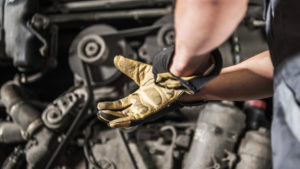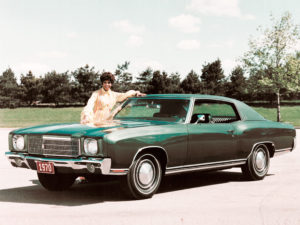On his show “Let’s Talk Wheels,” Mike Herzing answers questions from listeners who write in. While their specific situation might not match yours exactly, there’s still plenty to be learned from their experiences — and his expertise.
Christopher writes: I’m retiring in 187 days. (who’s counting?) and I want to travel and take my wife and two German Shepherds with me. Should I get a 24-30-foot travel trailer and an HD truck? Or get a Class C motorhome and tow my Jeep behind it?
Mike Herzing: What a great adventure, congratulations! I have traveled with both a class A motorhome and also a travel trailer, so I know what I would choose. The motorhome is excellent when you are actually on the road. You can pull over in a roadside park and have dinner, then continue, whereas a travel trailer requires time to set up. And the dogs would have the run of the place and not have to be kenneled or stuck in the back seat. You can’t do this with a travel trailer. However, once you get parked, the travel trailer has an advantage: more useable space.
The best way to decide is by recognizing what type of traveling you are going to do. If you are going to park somewhere for weeks or months at a time, then the travel trailer and HD truck is the way to go. Plus it gives you a vehicle to drive when you aren’t traveling. If you are going to be always on the go, then a motorhome and a dingy is best.
Carlton writes: I have a 2015 Ford SuperDuty with 115,000 miles. Now I want to trade it in and the dealer won’t take it because it is missing parts like the stock exhaust and diesel filter. I foolishly threw the stock parts away. Where can I find the parts to put it back to stock?
MH: Because many drivers want more diesel performance, I have seen this problem a few times. The dealer can’t sell a vehicle that is not emissions legal, and actually, an individual can’t sell one either. Most states have emissions laws that say if you buy a car and it isn’t emissions legal, you may be able to bring it back. So once you find out what you are missing, I’d visit a few salvage yards to find the parts. To replace the entire system with new parts could cost $10,000 or more. The moral of the story is to save all your stock parts
when you are installing aftermarket parts — never know when you might need them.
Charlene writes: You always talk about finding a shop that employs Automotive Service Excellence (ASE) certified technicians. Does the ASE teach them what to do? Why do you consider this important? If a mechanic doesn’t have this certification, should we not trust them?
MH: First of all, ASE only provides testing and subsequent certifications for technicians that pass its exams. To become an ASE Master Technician, you must pass tests covering eight areas: engine repair, automatic transmission/transaxle, manual transmission, suspension and steering, brakes, electrical/electronic systems, heating and air conditioning, and engine performance. There are several other certifications available for diesel engines and HD trucks, but let’s concentrate on these.
Being a professional automobile technician requires a huge investment in tools (over $100,000) and ongoing training. Sure, there are plenty of good techs out there that aren’t certified. However, the true professional technician will take the time to get the certifications to show his dedication to the craft. Modern cars contain over 70 processors and over 50,000 parts. Techs nowadays are more computer techs than auto techs, and many make over $125,000 a year. A shop with the ASE sign out front is working to raise the level of professionalism in the industry, something that is sorely needed.
For more tips from Mike, visit LetsTalkWheels.com. Be sure to subscribe to the new “Let’s Talk Wheels” podcast on iTunes, Spotify, or Google Play.








